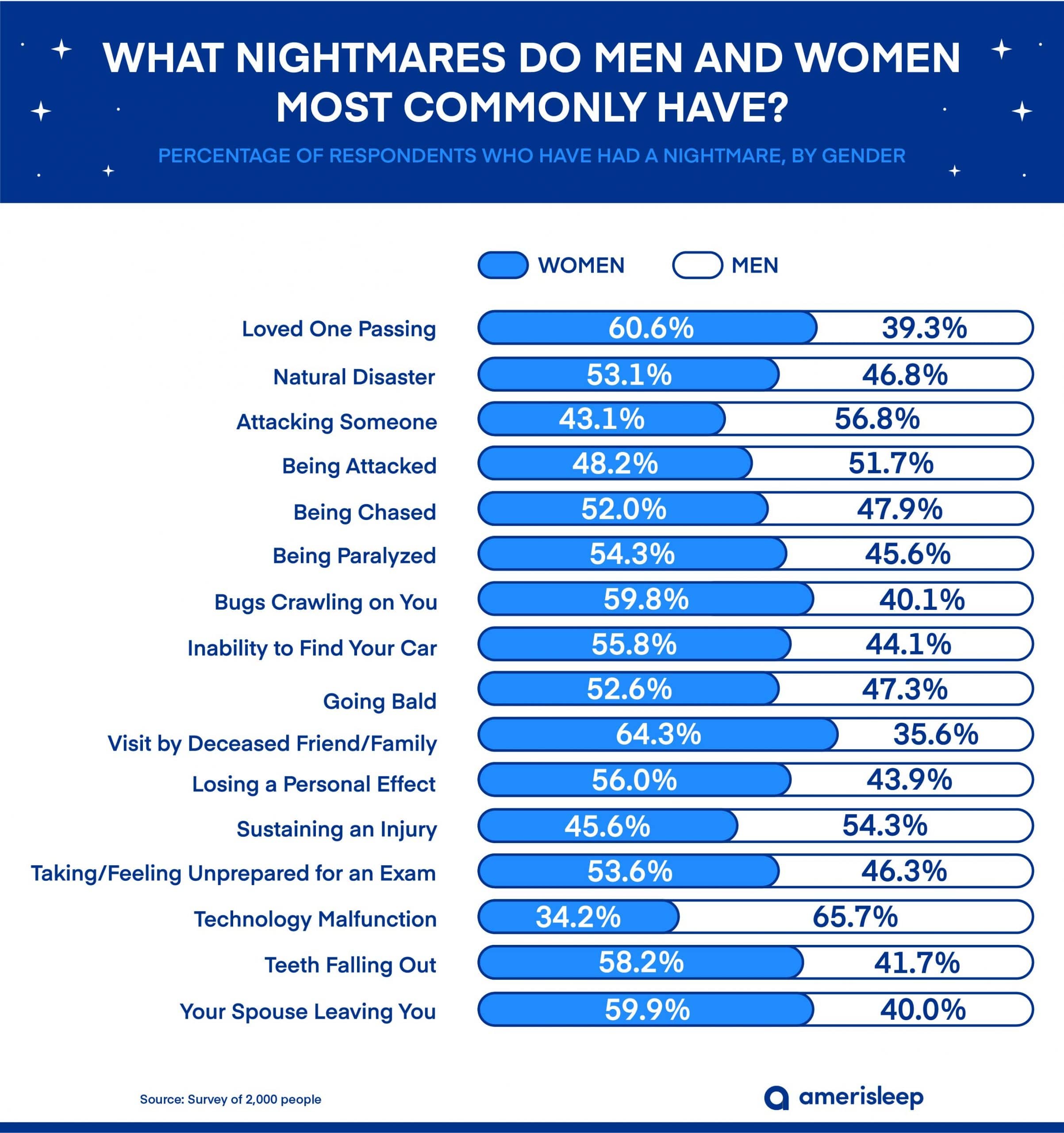


Occasional nightmares aren't usually a cause for concern.

Having a child with nightmare disorder can cause significant sleep disturbance and distress for parents or caregivers. Behavior problems related to bedtime or fear of the dark.Problems functioning at work or school or in social situations.Daytime sleepiness, fatigue or low energy.Problems with concentration or memory, or you can't stop thinking about images from your dreams.Major distress or impairment during the day, such as anxiety or persistent fear, or bedtime anxiety about having another nightmare.Nightmares are only considered a disorder if you experience: Your dream causes distress that keeps you from falling back to sleep easily.You can think clearly upon awakening and can recall details of your dream.You feel sweaty or have a pounding heartbeat while in bed.You feel scared, anxious, angry, sad or disgusted as a result of your dream.Your dream storyline is usually related to threats to safety or survival, but it can have other disturbing themes.Your dream seems vivid and real and is very upsetting, often becoming more disturbing as the dream unfolds.Episodes are generally brief, but they cause you to awaken, and returning to sleep can be difficult. Nightmares may occur rarely or more frequently, even several times a night. You're more likely to have a nightmare in the second half of your night.


 0 kommentar(er)
0 kommentar(er)
